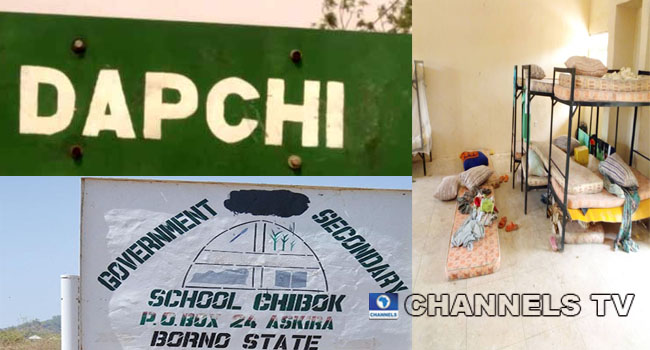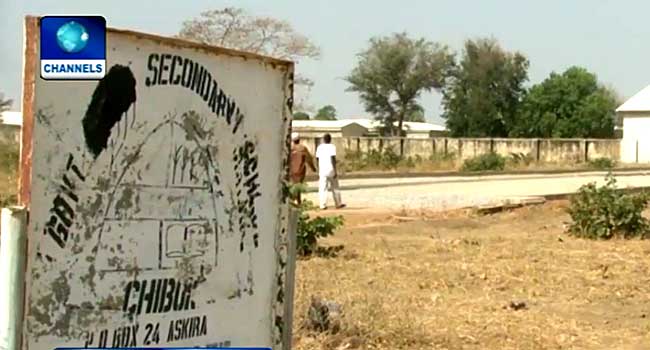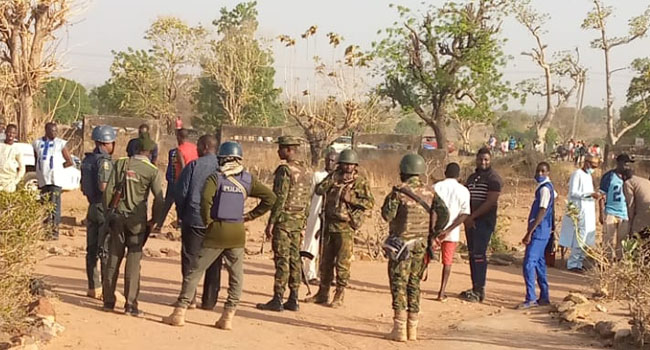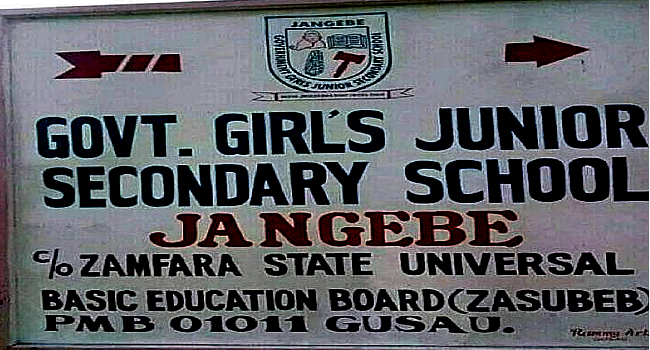From Chibok To Jangebe: A Timeline Of School Kidnappings In Nigeria

Suspected gunmen on Friday morning attacked a school in Zamfara State, abducting scores of students in the third mass abduction in the past three months in Africa’s most populous nation.
The attackers stormed the Government Girls Secondary School in Jangebe in the wee hours of the day.
Hours later, the police authorities in the northwestern state confirmed that three hundred and seventeen students (317) were abducted in the latest kidnapping, a development which Amnesty International described as an “attack on education in Northern Nigeria.”
Friday’s attack by assailants is not an isolated case. In the past few years, schoolchildren have become the latest high-profile kidnapping targets in the country, especially in the northern part, raising concerns over the safety of educational institutions across the nation.
Here is a timeline of mass kidnappings in schools in the West African nation:
14th April 2014: Boko Haram Strikes Chibok
The first of these school abductions dates to April 14th, 2014 when terrorist group Boko Haram attacked the Girls Secondary School in Chibok, a town on the border between Borno and Adamawa states.

About two hundred students were said to have been kidnapped during the attack in the northeast, a region ravaged by incessant assaults by the terror group.
Nigeria’s security agencies in the wake of the abduction moved to rescue the schoolchildren. The efforts have yielded some results as 107 of them have been reunited with their families.
Despite fears that the students may not return home again, the country is not backing down on its quest to get all kidnapped schoolchildren back, President Muhammadu Buhari assured during the fifth-year anniversary of the incident.
19th Feb. 2018: Dapchi Girls Captured
Barely four years after the attack on Chibok, the insurgents took their onslaught to Yobe, another state in the troubled northwest region. The Minister of Information and Culture, Lai Mohammed confirmed that 110 students were kidnapped after Boko Haram invaded the Government Girls Science Technical College (GGSTC) in Dapchi, on Monday, February 19, 2018.

When the gunmen attacked the all-girls boarding school, many residents of the town had thought they were security forces as they came in camouflaged vehicles.
Although most of the students have reunited with their families after they were released (on March 21, 2018) by their abductors, Leah Sharibu, is yet to be freed by the gunmen. Reports suggest the 14-year-old, a Christian, wasn’t freed with the others because she refused to convert to Islam.
Her continued stay in the terrorists’ den has become a subject of national and global interests. But the Nigerian government says it is committed to getting her out of captivity
11th Dec. 2020: Gunmen Kidnap Kankara Boys
While the country battles to eradicate terror attacks from Boko Haram, mass kidnapping of schoolchildren spread to the northwestern region. On Friday, December 11th, bandits took three hundred and three students of Government Science Secondary School, Kankara, Katsina into captivity.
The incident which happened just as President Buhari embarked on a week-long vacation in his home state of Katsina, security experts believe, further underscored the porous nature of Nigerian schools.

But, a week after the students were taken into captivity, their abductors released them. The government denied paying a ransom to secure the students from the all-boys educational institution.
The presidency had said the release of the students is a pointer to the administration’s resolve to ensure the safety of Nigerians, thanking security agencies for their swiftness.
Feb. 17th 2021: Bandits Seize 41 In Kagara
Amid calls by several high-profile personalities to negotiate with and grant amnesty to bandits who have in recent times appeared emboldened in their attacks, 41 persons were kidnapped on Wednesday, February 17th, 2021 in a school in Niger State.
The gunmen raided the Government Science College Kagara, Shiroro Local Government Area of Niger State, capturing students, teachers, and their family members from the school. Twenty-seven students were among the abductees.

Buhari had, following the incident, given a marching order to security agents to rescue the students and ensure they return and are reunited with their parents unhurt. The State governor, Abubakar Sani Bello had also ordered the closure of all boarding schools in the northcentral state, a move he said, was to forestall similar mass abduction.
26th Feb. 2021: 317 Female Students Abducted In Jangebe
Less than ten days after the bandits raided Kagara, gunmen kidnapped 317 schoolgirls from the Government Girls Science Secondary School Jangebe in Jangebe, Zamfara State. The incident happened on Friday, February 26th, 2021
The all-female school located in Talata-Mafara Local Government Area of the state was attacked past midnight. Police authorities in Zamfara say rescue efforts are in top gear, calling for calm among residents of the state.

High-profile individuals and organizations have continued to condemn the recent abduction in Zamfara.
“The girls abducted are in serious risk of being harmed. Nigerian authorities must take all measures to return them to safety, along with all children currently under the custody of armed groups,” rights group, Amnesty International, tweeted on its handle.
“Education is under attack in northern Nigeria. Schools should be places of safety, and no child should have to choose between their education and their life. Other children have had to abandon their education after being displaced by frequent violent attacks on their communities.”




